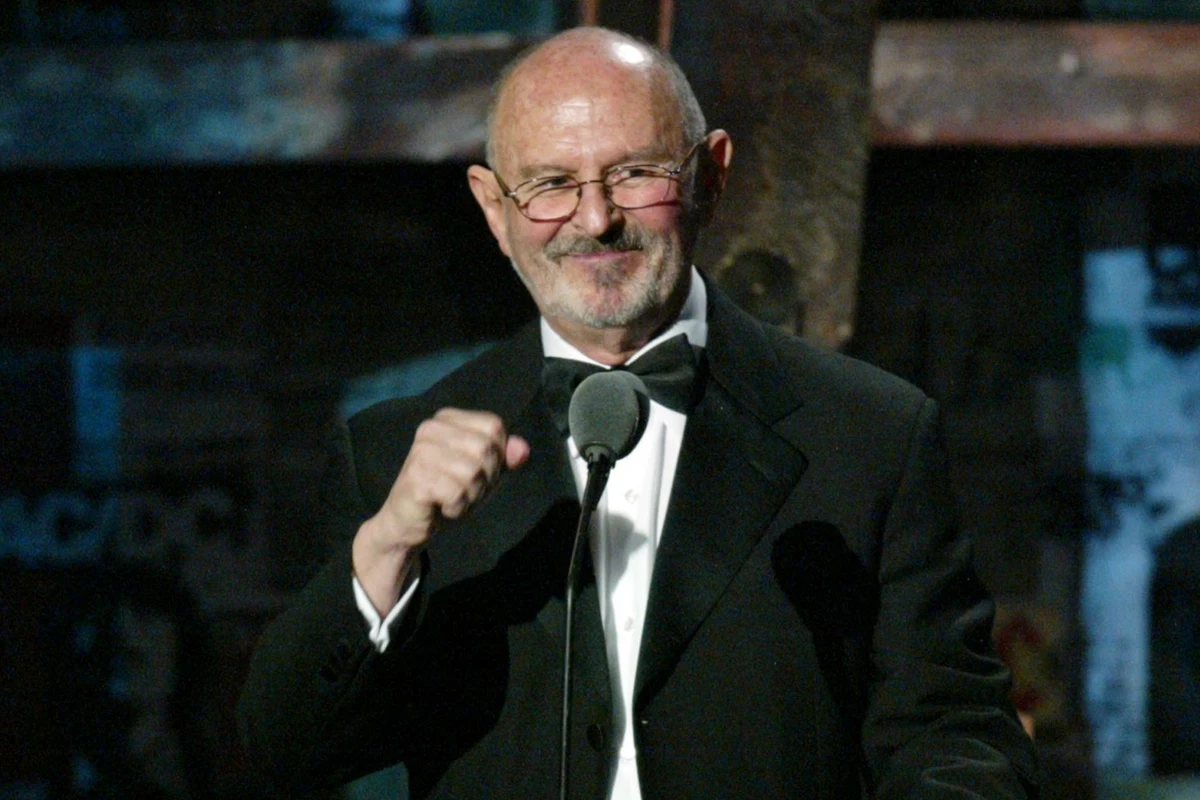Mo Ostin, the hugely influential music executive who helmed Warner Bros. Records for more than 30 years, has died at the age of 95.
Born Morris Meyer Ostrofsky in 1927, the future music mogul spent his early childhood in New York, before he and his family relocated to Los Angeles in 1941. In 1953, after studying economics at UCLA, he landed a job at Verve Records working in the finance department. Seven years later, following a failed attempt to purchase Verve, legendary singer Frank Sinatra launched his own label, Reprise, and poached Ostin to run it. In 1963, Reprise was purchased by Warner Bros.
Ostin quickly made a name for himself at Warner Bros., signing the Kinks in 1964 and the Jimi Hendrix Experience in ‘67. In 1970 he was promoted to the president of Warner-Reprise; two years later, he’d be made chairman/CEO — a title he held until his departure from the company in 1994.
Under Ostin’s watch, Warner Bros. accumulated a roster of clients that featured some of music’s biggest acts, including Fleetwood Mac, Van Halen, the Who, Van Morrison, the Grateful Dead, Joni Mitchell, Randy Newman, James Taylor, Rod Stewart, R.E.M., Steely Dan, Tom Petty and the Heartbreakers, the Red Hot Chili Peppers and Green Day.
Ostin earned a reputation for his artist-friendly approach, something he said he gleaned by working for Sinatra. “He divined that the thrust of the company should be its artists,” Ostin explained in the 2002 book Exploding. “It all seems logical today, but back then it was truly revolutionary.”
Though prolific, Ostin’s tenure at Warner Bros. wasn’t always easy. The label was notably going through a tumultuous period in the early ‘90s, following the merger of Warner Communications and Time Inc. It was also around this time that Prince began a well-publicized feud with the label, angry that he had no control over the speed at which they released his material. In the midst of this storm, Ostin decided to depart the company he’d help lead for more than three decades.
The famed executive left Warner Bros. in 1994 and latched on with DreamWorks Records less than a year later. The upstart label made a name for itself signing an eclectic lineup of artists, including Elliott Smith, Henry Rollins, Eels, Papa Roach, Jimmy Eat World, Rufus Wainwright and Nelly Furtado. Still, by 2003, declining sales and the dawn of online music piracy had taken an effect and DreamWorks Records was sold to Universal Music and eventually dissolved.
Ostin was inducted into the Rock & Roll Hall of Fame in 2003 by Neil Young, Paul Simon and Saturday Night Live creator Lorne Michaels. “Anybody who was on Warner Bros. during the Mo years knew it to be an exalted time,” Simon said during the ceremony, “with the possible exception of Prince.”
“I love Mo,” added Young. “This man, Mo Ostin, was behind the music. He was behind making it happen. He was behind letting it happen, however it was gonna happen. And he was behind keeping it happening. And that’s why Reprise and Warner Bros. were the greatest label ever in music as far as I’m concerned.”
As word of Ostin’s passing became public, many music industry insiders paid their respects. In a joint statement, Warner Records’ co-chairman/CEO Aaron Bay-Schuck and co-chairman/COO Tom Corson described Ostin as “one of the greatest record men of all time, and a prime architect of the modern music business. For Mo, it was always first and foremost about helping artists realize their vision.” Max Lousada, CEO of Warner Recorded Music called Ostin “a pioneer who wrote the rulebook for others to follow,” while Universal Music Group chairman/CEO Lucian Grainge noted that his “nose for talent was the stuff of legend, but he was also an incredible connector of people; something sorely missed in the business—and the world—today.”
In Memoriam: 2022 Deaths
A look at those we’ve lost.

